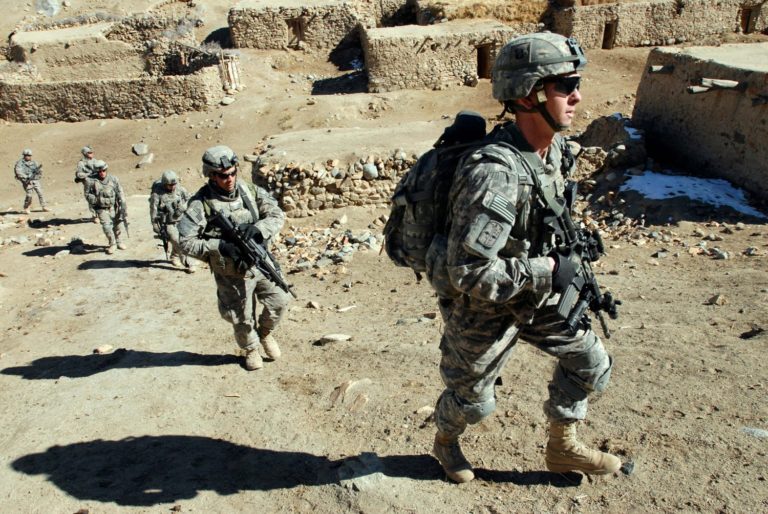Veterans of the Global War on Terror and Benefits Available

Background
Operation Iraqi Freedom (OIF), Operation Enduring Freedom (OEF), and Operation New Dawn (OND) are classified under the umbrella term “Global War on Terror” (GWOT). This international military campaign was launched following the September 11, 2001 terrorist attacks against the United States.
- Operation Iraqi Freedom (OIF) took place from March 2003 to August 2010;
- Operation New Dawn (OND) occurred from September 2010 to December 2011. This conflict’s operational name was announced in order to reflect the reduced involvement of U.S. troops in Iraq;
- Operation Enduring Freedom (OEF) began in October 2001 and continues to the present day in Afghanistan.
Healthcare and Benefits Statistics
Benefits
According to VA’s Annual Benefits Report for Fiscal Year 2016, more than 1 million Global War on Terror veterans have a service-connected disability, amassing nearly 8 million disabilities collectively.
Healthcare
VA’s Analysis of VA Health Care Utilization among OEF, OIF, and OND Veterans found that about 62%, or 1,218,857, of Global War on Terror veterans have utilized VA healthcare since October 2001. Veterans from these conflicts often share similar diagnoses. The most common conditions among Global War on Terror veterans accessing VA healthcare are:
- Musculoskeletal ailments affect 62.3% (759,000) of GWOT veterans;
- “Symptoms, signs, and ill-defined conditions” were diagnosed in 58.7% (715,000) of GWOT veterans;
- Mental disorders, such as PTSD, affected 58.1% (708,000) of GWOT veterans.
Global War on Terror-Specific Benefits
Enhanced Healthcare Eligibility
Combat veterans who served under other than dishonorable conditions on or after November 11, 1998 may qualify for an extended period of healthcare eligibility for 5 years after discharge. Under this program, combat veterans are provided healthcare services and community living care for conditions incurred in-service. Treatment for service-connected conditions are provided to the veteran at no cost.
Post-9/11 GI Bill
Global War on Terror veterans who have been discharged under honorable conditions may qualify for Post-9/11 GI Bill Benefits to help cover education expenses. Veterans who have “at least 90 days of aggregate service on or after September 11, 2001” or were discharged with a service-connected disability after 30 days can qualify. This benefit can pay tuition and fees, housing allowances, a living expenses stipend, and an annual books and supplies stipend to veterans seeking to further their education. More information on the GI Bill can be found in our blog explaining the GI Bill.
Caregiver Assistance
Veterans who have incurred or aggravated a serious injury, such as a traumatic brain injury or psychological trauma, in the line of duty on or after September 11, 2001 may qualify for VA’s caregiver program. Qualified veterans must require personal care services or supervision in order to carry out the activities of daily living.
Burn Pit Registry
During the Global War On Terror, the U.S. military utilized burn pits—massive pits of waste ignited with jet fuel—as a method of disposal of the waste generated by bases. Waste burn includes plastics, paint, medical and human waste, rubber, and more. Although VA states that not enough evidence exists linking burn pit exposure to long-term health effects, the Department has set up the Airborne Hazards and Open Burn Pit Registry for veterans and service members to “document their exposures and report health concerns.”
Service members and veterans eligible to participate in the Registry are those who served in:
- OIF/OEF/OND;
- Operation Desert Storm or Desert Shield;
- Djibouti, Africa on or after September 11, 2001;
- Southwest Asia Theater of Operations on or after August 2, 1990
About the Author
Share this Post
